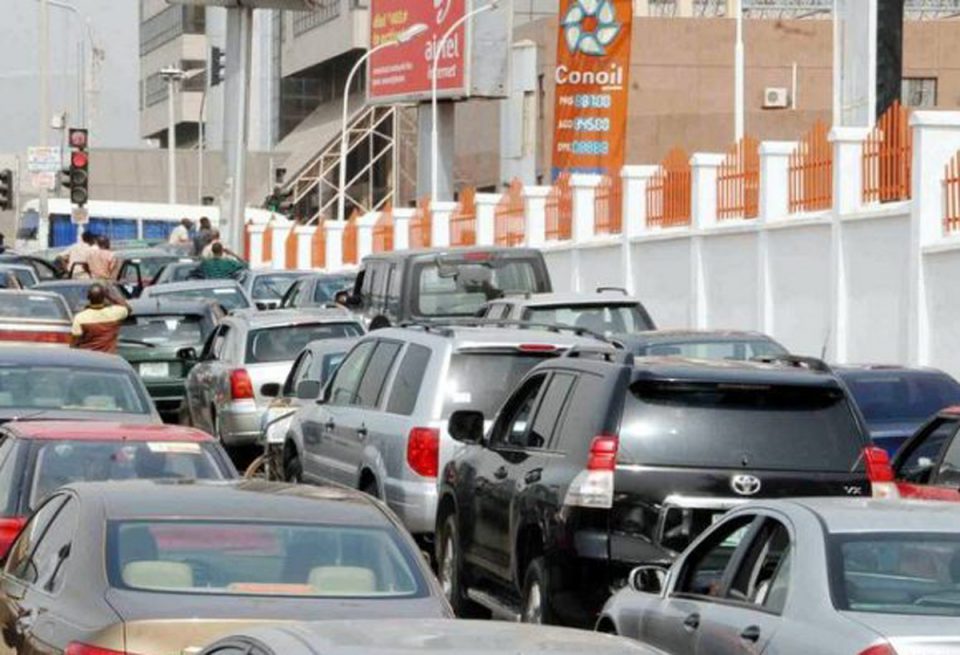Fuel queues return to Abuja, others as supply dips
The scarcity of Premium Motor Spirit, popularly called petrol, has again returned to Abuja, Nasarawa, Niger, Kaduna and other states, causing massive queues at the few filling stations that dispensed the product in the affected areas.
In providing an explanation for the resurgent fuel scarcity, oil marketers said the commodity had been difficult to access, and that many of their trucks had been in queues at depots since October last year.
But the Nigerian National Petroleum Company Limited blamed the massive queues on restrictions in businesses and movement, to allow for the conduct of the presidential and National Assembly elections.
Our correspondent observed that the queues in Abuja and neighbouring states started building up since last Friday.
It became alarming on Sunday, as many filling stations, both those belonging to independent and major marketers, ran out of products to dispense.
From Zuba in Niger State, to Mararaba in Nasarawa State, as well as in the Federal Capital Territory, most retailers of petrol did not dispense the commodity. They locked up their stations, a development that piled pressure on the few outlets that sold PMS on Sunday.
At the Salbas, Nipco and NNPCL mega stations on the Kubwa-Zuba Expressway, for instance, motorists formed queues that stretched several kilometres while waiting to buy petrol.
Oil marketers said they were currently finding it tough to get products to dispense, which was why private depots were selling above the approved price stipulated by the government.
“The question now is, are there even products? Are marketers seeing the products to buy, before talking about dispensing it to consumers? The truth is that we are not seeing the product,” the President, Petroleum Retail Outlet Owners Association of Nigeria, Billy Gillis-Harry, told our correspondent.
He added, “Some of us who paid for products since October, have not been able to load till now, and the cost around this is increasing every day. So by the time they load it, you can imagine the cost burden on the marketers.”
When told that the NNPCL recently announced that it had enough products to keep the country wet till March 2023, Gillis-Harry replied, “Has NNPCL ever told you that it doesn’t have enough products?”
2.1bn litres in stock
Amid the scarcity and widespread queues, the NNPCL announced on Sunday that it had 2.1 billion litres of PMS, adding that it had enough product to keep the country wet for 47 days.
“Latest updates released on Saturday show a total of 2.1 billion litres of PMS stock, representing 0.9 billion litres in all the land depots nationwide and 1.2 billion litres on marine vessels, which is equivalent to 35 days sufficiency as of March 4, 2023.
‘We plan to close the month of March 2023 with about 2.8 billion litres, which is equivalent to 47 days of sufficiency,” the Chief Corporate Communications Officer, NNPCL, Garba-Deen Muhammad, said in a statement issued in Abuja.
He said the appearance of queues in Abuja and some parts of the country “is largely due to restrictions in businesses and movement, to allow for the conduct of the presidential and NASS elections and enable Nigerians to exercise their civic right.”
Muhammad, however, stated that operations had now resumed at the depots and trucks were being dispatched to various parts of the country, adding that “we expect normalcy to be restored in the next few days.”
He said NNPC Ltd and all its partners and stakeholders would continue to work together to ensure seamless distribution of petroleum products around the gubernatorial and state Assembly elections.
“We, therefore, enjoin Nigerians not to engage in panic buying,” the oil company’s spokesperson stated.



